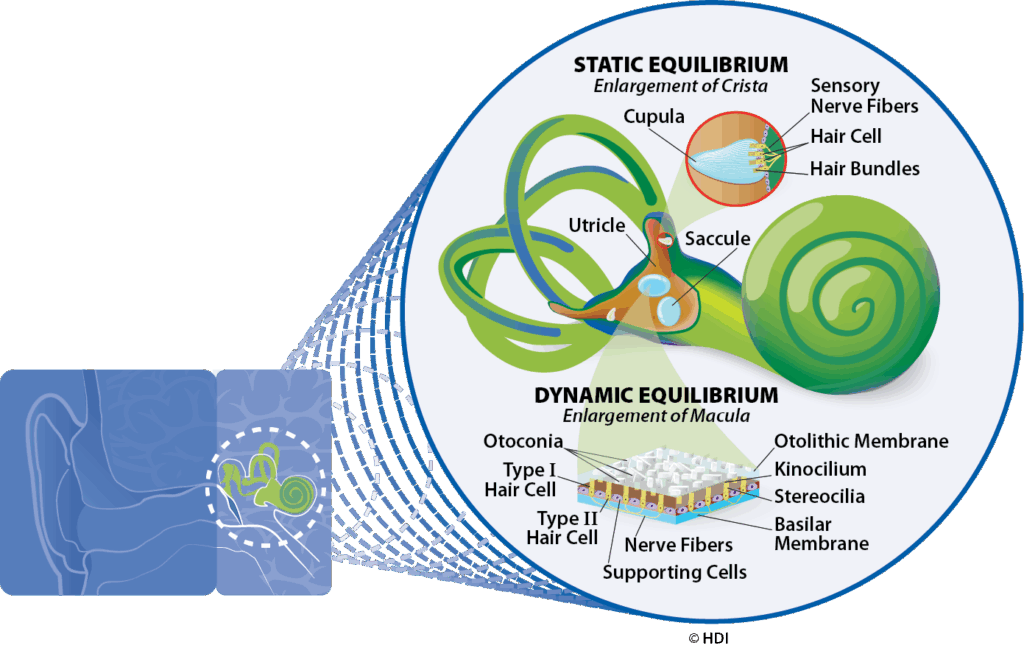As the seasons shift, slips and falls become a greater concern for many adults. In fact, many or most of these harmful incidents occur amid our daily surroundings. From a safety perspective, what we might not realize is that balance problems aren’t just about being careful on your feet; they are closely tied to your inner ear’s delicate functions. When either is disrupted, the risk of dizziness, unsteadiness, or falls can increase, particularly from midlife through older adulthood.
Your inner ear contains a versatile structure called the vestibular system. It works like your body’s “balance control center,” sending important signals to your brain to help you stay upright. This essential body system teams up with your hearing and vision to keep you steady and safe.

Have you or a loved one experienced:
- Sense of motion or spinning (vertigo)
- Loss of balance or unsteadiness
- Dizziness, nausea or fatigue
- Trouble focusing or lightheadedness
These common symptoms can leave you and your loved ones feeling frustrated. Understanding why it happens often begins with identifying inner ear–related conditions that can disrupt balance, such as:
Vestibular Migraines can do more than trigger headaches. They may cause dizziness, vertigo, imbalance, or even sensitivity to sound and light. These episodes can last minutes to hours, and in some cases, leave lingering unsteadiness. Certain foods, stress, or lack of sleep are often triggers, making awareness and management especially important.
Head Injuries such as Traumatic Brain Injuries (TBI) & Concussions can damage the inner ear or brain pathways that regulate balance and hearing. This may result in vertigo, ringing in the ears, or trouble focusing visually. Even mild concussions can have lasting effects on balance when the vestibular system is involved.
Recognizing the warning signs and getting proactive evaluations early are important steps in protecting your daily safety and long-term quality of life.
Your inner ear and hearing work together to keep you steady and alert. Balance signals tell your brain where your body is, while sounds alert you to danger. Migraines or head injuries can disrupt these systems and even one dangerous occurrence can raise your risk of falls.

As you consider the important connection between balance, hearing, and overall well-being, remember that early care makes a lasting difference. Protect your health and gain confidence by taking the healthy step to schedule your visit with us soon.
In life’s journey, stay steady, stay safe, and be Happy to Hear!

